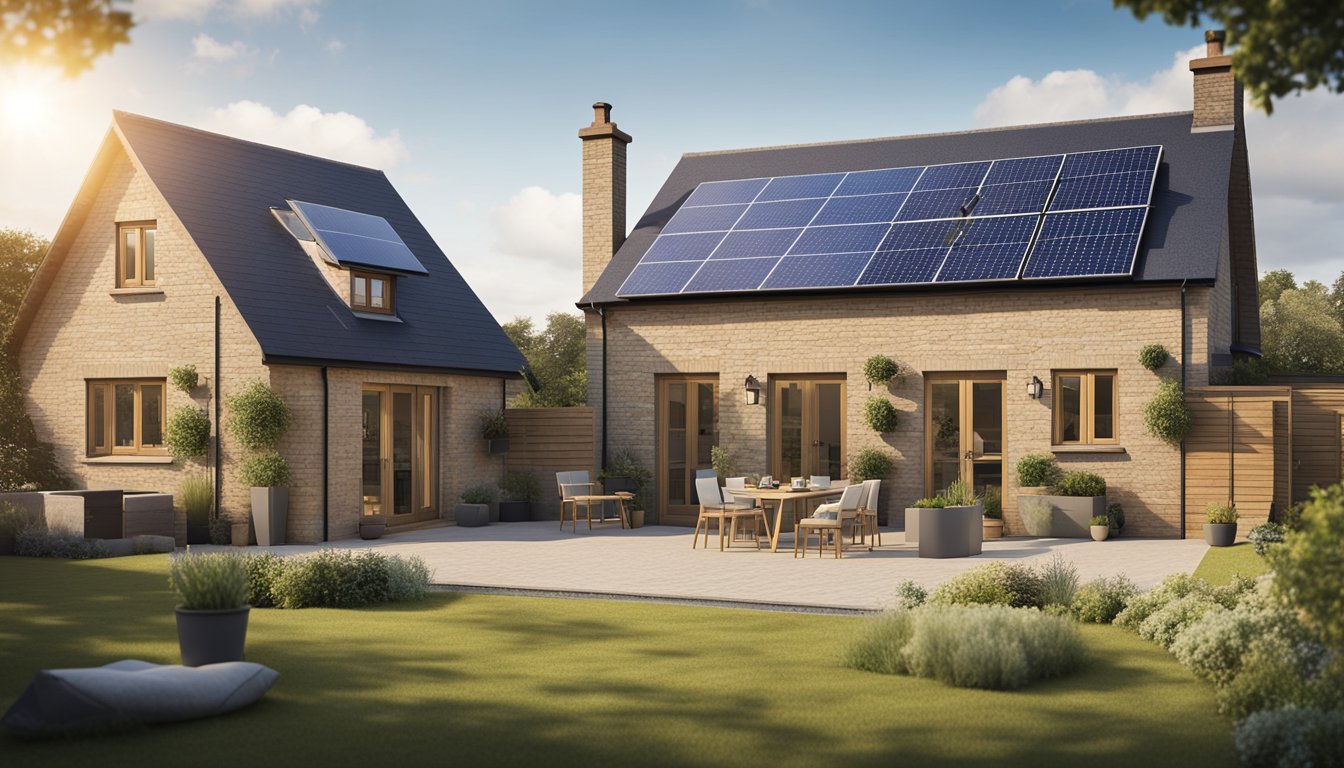Late updated: 23 Dec 2024 09:12
Written by: Oliver Bennett
Sustainable Internet Gadgets For UK Rural Homes: Enhancing Eco-Friendly Connectivity
In the heart of the UK countryside, sustainable technology is transforming rural homes, offering innovative solutions that align with eco-friendly living. Sustainable internet gadgets are not just enhancing connectivity but also promoting environmental responsibility in rural areas. By integrating these green technologies, we’re embracing a future where the Internet and sustainability go hand in hand.

As we navigate the challenges of connectivity in rural communities, it becomes clear that eco-friendly gadgets are more than just a trend—they're a necessity. These devices are designed to reduce carbon emissions while optimising energy use, ensuring that even the most remote areas can enjoy modern conveniences without compromising the environment.
Exploring the landscape of sustainable living, we uncover how these technologies help us achieve a balanced blend of convenience and conservation. Our commitment to sustainable home management reflects a broader societal shift towards greener practices, with the potential to make a significant impact in the beautiful and pristine UK countryside.
Key Takeaways
- Sustainable technology enhances rural connectivity.
- Eco-friendly gadgets reduce carbon emissions.
- Green practices support sustainable living.
The Landscape of Connectivity in UK Rural Communities

The UK countryside has made significant strides in enhancing connectivity, but challenges remain. With a focus on delivering broadband solutions and improving mobile network infrastructure, the landscape is transforming, yet some areas still lag behind.
Addressing the Digital Divide: High-Speed Broadband Solutions
Connectivity in rural UK homes has seen notable improvements with the introduction of gigabit-capable broadband and full fibre networks. Openreach, alongside companies like Gigaclear and Fibrus, have played vital roles in expanding high-speed broadband access. With Project Gigabit, the government aims to bridge the digital divide, bringing better internet to underserved areas.
Despite this progress, remote and rural areas still face difficulties. Schemes like the broadband voucher scheme offer financial assistance to households far from the reach of fibre networks. These initiatives help ensure high-speed broadband access, allowing rural communities the opportunity to connect effectively.
Mobile Networks and Social Inclusion
Improving mobile network coverage is essential for the social inclusion of those living in rural communities. The Shared Rural Network initiative focuses on delivering reliable 4G mobile coverage, essential for communication and access to services. Expanded mobile broadband coverage helps reduce the isolation of rural communities, offering better access to social opportunities.
Providers like us continue to invest in making mobile connectivity more robust. Satellite broadband offers an alternative in areas where traditional infrastructure lags. Enhanced mobile networks not only improve internet access but also play a pivotal role in addressing digital exclusion and fostering connectivity throughout rural UK.
Eco-friendly Gadgets and Sustainability in Home Management

Eco-friendly gadgets are transforming home management by integrating renewable energy solutions and enhancing energy and water efficiency. These advancements contribute significantly to reducing carbon footprints and promoting sustainable living, especially in rural UK homes.
Energy Efficiency Through Innovative Gadgets
Improving energy efficiency is pivotal in reducing carbon emissions. Smart thermostats, such as the Nest or Ecobee, allow us to manage heating and cooling more effectively, leading to a lower energy footprint. They adapt to our routines, ensuring energy isn't wasted when we’re not home.
LED bulbs are another example. They consume significantly less energy compared to traditional incandescent bulbs, offering longer longevity. Energy-efficient appliances, like heat pumps, also play a crucial role. They utilise innovative technologies to heat and cool homes efficiently, making them indispensable for an energy-conscious household.
Harnessing Renewable Resources
Utilising renewable resources is a proactive step towards sustainable living. Solar panels can be installed to harness solar energy, providing a renewable energy source that lowers electricity bills. Solar power is particularly beneficial in rural areas where grid access may be limited.
Portable chargers and solar-powered chargers offer flexibility, ensuring our gadgets remain functional with minimal environmental impact. Wind turbines and biomass boilers are also viable options for renewable heating solutions. These technologies help us further reduce our dependency on fossil fuels, aligning with sustainable living goals.
Water and Energy Conservation Technologies
Water conservation is an essential aspect of sustainable home management. Low-flow taps and dual-flush toilets significantly reduce water usage without compromising functionality. Smart irrigation systems optimise water use in gardens, adjusting according to weather conditions to prevent wastage.
In terms of energy conservation, smart plugs can remotely control and monitor home appliances, helping us to manage energy use effectively. These plugs can turn off devices when not in use, reducing unnecessary power consumption. Integrating these technologies ensures resources are used efficiently, underpinning a sustainable household management approach.
Frequently Asked Questions
In this section, we aim to address the common queries surrounding sustainable internet gadgets for enhancing life in rural UK homes. By exploring the best eco-friendly devices, identifying sustainable companies, and discovering valuable resources, we hope to provide insightful and practical advice.
What are the top-rated eco-friendly internet gadgets for improving connectivity in rural UK homes?
Among the leading eco-friendly gadgets are signal boosters that enhance connectivity. These devices amplify existing signals, efficiently bridging the gap between remote locations and service towers. Energy-efficient routers are also popular, designed to minimise power consumption without compromising internet speed or reliability.
Which devices are known for their sustainability and suitable for remote UK locations with limited internet access?
Solar-powered routers and energy-efficient modems top the list of sustainable devices. These gadgets harness renewable energy, providing reliable service to areas with fluctuating or scarce electricity. Battery backups designed for minimal environmental impact are also useful for maintaining consistent connectivity during power outages.
How can environmentally conscious consumers identify gadget companies committed to sustainability in the UK?
A good starting point is to research certifications such as the Energy Star rating, ensuring products meet rigorous sustainability criteria. Looking at company commitments to reducing carbon footprints or their use of recyclable materials in production can also indicate a focus on sustainability. Many companies openly share their sustainability policies on their websites.
What are the best online resources for finding sustainable tech gadgets tailored for rural home use?
Websites dedicated to eco-friendly living, such as Ethical Consumer and Green Shopper UK, provide comprehensive reviews and recommendations. Online forums and communities focusing on sustainable technology can also offer valuable insights and user experiences, aiding in making informed decisions.
Could you suggest some environmentally friendly tech gifts that are appropriate for rural households in the UK?
Consider solar-powered phone chargers, which are perfect for on-the-go families in rural settings. Smart thermostats that lower energy consumption while maintaining comfort can also be thoughtful gifts. Eco-friendly smart lighting systems offer another tech-savvy option, enhancing home environments sustainably.
What criteria should consumers use to evaluate the environmental impact of internet gadgets before purchasing?
When choosing internet gadgets, consider the lifecycle assessment of the device, including energy efficiency during use and manufacturing. Check for recyclable components and packaging, keeping an eye out for products with a minimal environmental footprint. Opt for gadgets with certifications that verify their eco-friendliness and sustainability.
